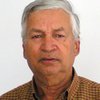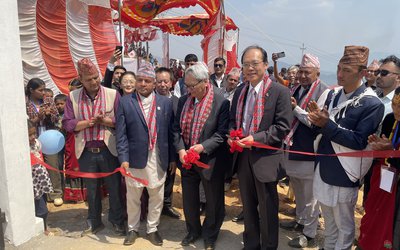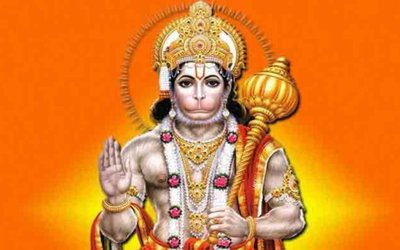When I reflect on Nepal’s decade-old Maoist insurgency, my thoughts go to Rishikesh Shah, one of Nepal’s most colorful, if not controversial, politicians of my time. An ex-diplomat, he once said he had the rare honor of heading the Nepal Desk at the UN when the Cold War between two super powers was at its peak. Shah was a prominent member of the Nepalese elite, noted also as an author and a historian. At the personal level, he was a long time family acquaintance and each time we ran into each other he would express words of kindness and reverence for my historian grandfather. One afternoon, he kind of sprang surprise by formally announcing that of late he had become the spokesperson of Baburam Bhattarai, an ultra communist, but a lesser-known political entity at the time. Coming from someone who possibly was in his mid-sixties and already known for substantial political and academic achievements, Shah’s announcement raised many an eyebrow, and the few media people gathered for a press meet by interim Prime Minister Krishna Prasad Bhattarai were surely taken aback. The press meet was intended to shed light on the merits of Nepal’s new constitution of 1990,and the prime minister, vocal and articulate that he was, had waxed eloquently on one of the constitutional provisions; the constitutional monarchy.
The press meet over, Shah, who was down at the hotel lobby, pulled aside some pressmen, including, myself, and said, “You know, this one (constitution) is given by the King, no matter what the prime minister says. This isn’t the right way to have a constitution. It is not the king who we should be getting it from, the people themselves should write it. But first, we must elect an assembly,” the chubby-checked character spoke in what could well be a kind of a monologue. Shah went on to say he knew of one politician who, rejecting the new constitution has raised the voice for electing a constituent assembly to write the statute. And this person was no other than the rebel Baburam.
Some of us would confront Shaha there and then, asking questions like how come a senior and aged scholar-diplomat like him had turned out to be a fan and follower of a political upstart like the one he just named? But Shaha had words of accolade for this young and sharp intellectual. He holds out promise for a people’s assembly to write new law in Nepal, Shaha said.
Shaha’s objection to Nepal’s new constitution of 1990 lay in the method, or say, the modus operandi followed by King Birendra while proclaiming it that year. We all knew that the king had reluctantly given his consent to the new statute. The monarch had resisted pressures from all around, including the reservations expressed by the top brass of the Royal Nepalese Army that clearly wanted the king to retain some executive powers. With the political parties wresting away state power, the king was down, but not out yet. And if anybody was looking for a proof, he was still vested with the authority to proclaim the new constitution. While making the proclamation however he had erred: the king did not read the mandatory preamble from the official book prepared by the constitution draft committee. Instead, he quietly took out a note from his coat pocket and read out from it. The official version of the preamble had said that the new constitution was the fallout of a popular uprising against the king’s direct rule, while his personal note mentioned that the king had invoked the sovereign powers vested in him to proclaim the new statue. Rejection of the official preamble was tantamount to undermining the very gains of the popular movement. What is more, by reading out from his personal note, the monarch had conveyed it to the Nepalese people loud and clear that he can’t be wished away and they may have to look upon him as and when the country needed to announce a new statute.
Clearly, it was some kind of misdemeanor of the monarch, cunningly conducted. Yet the Nepalese politicians and leaders of the political parties, all euphoric and excited over what they saw as their new found voice and rights, chose not to murmur any dissent. But there were exceptions in the people like Shaha who said,” I wasn’t amused; it was something serious.”
Shaha died, long before his dream was realized, that of framing a constitution by an elected house in Nepal. In the year 2008, Nepal did elect a people’s assembly to hammer out a constitution. Four years later the painfully elected the 601-member assembly, however, was non-achiever,’ unilaterally and deceitfully’, dissolved, so went the allegation, by Shaha’s idol who has made it to the post of prime minister. The assembly created more political problems for Nepal than it could resolve. Shaha must have turned upside down in his grave when Nepal had a constituent assembly; he must have squirmed in shame when a person none other than his own hero unwittingly dissolved it.
(Excerpts of journalist Acharya’s book My Trust with Writing, a memoir. The book is now available in the market)
















